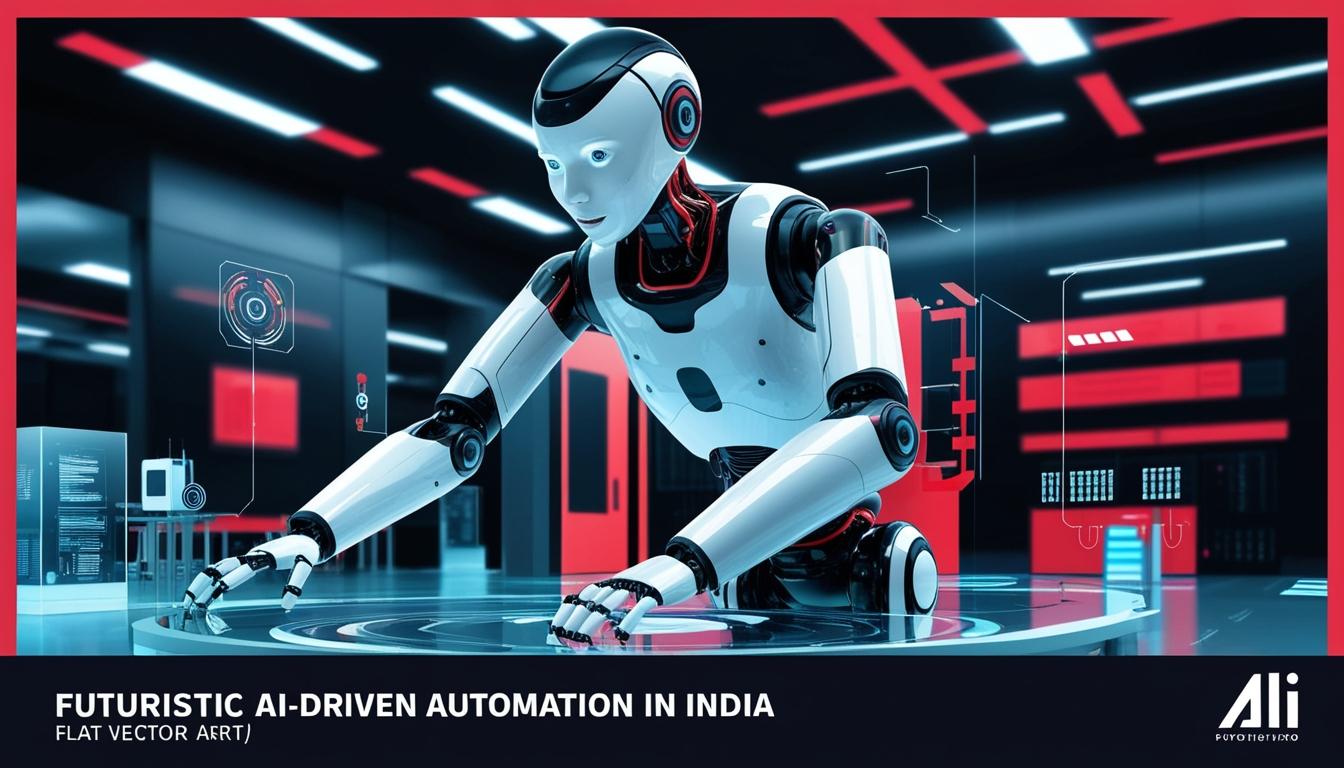Artificial Intelligence (AI)-driven automation is increasingly transforming business practices across various industries in India, delivering intangible benefits through the implementation of zero-touch processes. This concept involves operations run end-to-end with minimal or no human intervention, utilising integrated digital systems, artificial intelligence, and automation technologies. Experts contend that organisations are successfully creating seamless services and workflows in key sectors including finance, IT, healthcare, manufacturing, and citizen services.
A recent study by Deloitte highlighted the impact of low-touch operations within the Business Process Management (BPM) and Information Technology Enabled Services (ITeS) industries. The findings indicated significant productivity gains and cost savings of approximately 65%. Enhancements in customer satisfaction were reported at 25%, while revenue growth reached 10%. Siddharth Tipnis, partner and technology sector leader at Deloitte India, explained that the implementation of AI chatbots for routine inquiries and AI voice bots for complex customer interactions has transformed inconsistent customer experiences. “For BPM organisations, low touch opportunities have impacted business KPIs positively along three key levers: bottom line (through productivity improvements), customer experience, and even top line in certain cases,” he stated.
India's digital public infrastructure showcases successful examples of zero-touch operations, notably the Unified Payments Interface (UPI) and the Digi Yatra app. UPI has revolutionised payment methods with its round-the-clock availability and QR code integration. According to data from the National Payments Corporation of India, UPI processed approximately Rs 23.49 lakh crores across 16.58 billion transactions in October 2024, marking a 45% year-on-year growth. Currently, 632 banks are connected to the UPI platform, solidifying its dominance in India's payments landscape.
On the other hand, the Digi Yatra app has streamlined air travel for passengers, enabling contactless and paperless processing. Since its launch in December 2022, the app has reduced the airport entry process from an average of 15 seconds to just 5 seconds. Over 55 lakh users have downloaded the app, with more than 3 crore passengers utilising it across 24 airports in India.
In the telecom sector, eSIM technology represents another facet of zero-touch operations, offering a digital alternative to traditional SIM cards. Counterpoint Research indicates that while eSIMs are gaining traction, the adoption has been slow in India. As of 2023, only about 14-15 million smartphones sold in India support eSIM technology, in stark contrast to the 70% penetration observed in the United States.
The competition in humanoid technology has intensified globally, with the emergence of Generative AI (GenAI) capturing attention. Companies like Reliance Jio and Addverb are at the forefront of this development in India. Bir Singh, co-founder and chief business officer of Addverb, emphasised that zero-touch operations are on the rise within the manufacturing sector, enhancing precision, safety, and efficiency. Addverb intends to launch 100 humanoid robots in 2025, integrated with Jio’s AI stack, signalling a significant advancement aimed at automating complex and repetitive tasks to allow human labour to be redirected to more strategic roles.
Despite these advancements, a challenge remains for the 113 million micro, small and medium enterprises (MSMEs) in India, which account for about 45% of the manufacturing output. Many of these MSMEs lack the financial resources and technological expertise required to adopt robotic technologies. Nevertheless, Singh noted that “the initial investments can be offset by long-term benefits—contact reduction, higher production, and improved quality controls”, suggesting a potential pathway for future industry growth.
Overall, the current and prospective applications of AI automation in Indian businesses illustrate a significant trend towards increased efficiency and enhanced service delivery, laying the groundwork for continued advancements in the coming years.
Source: Noah Wire Services
